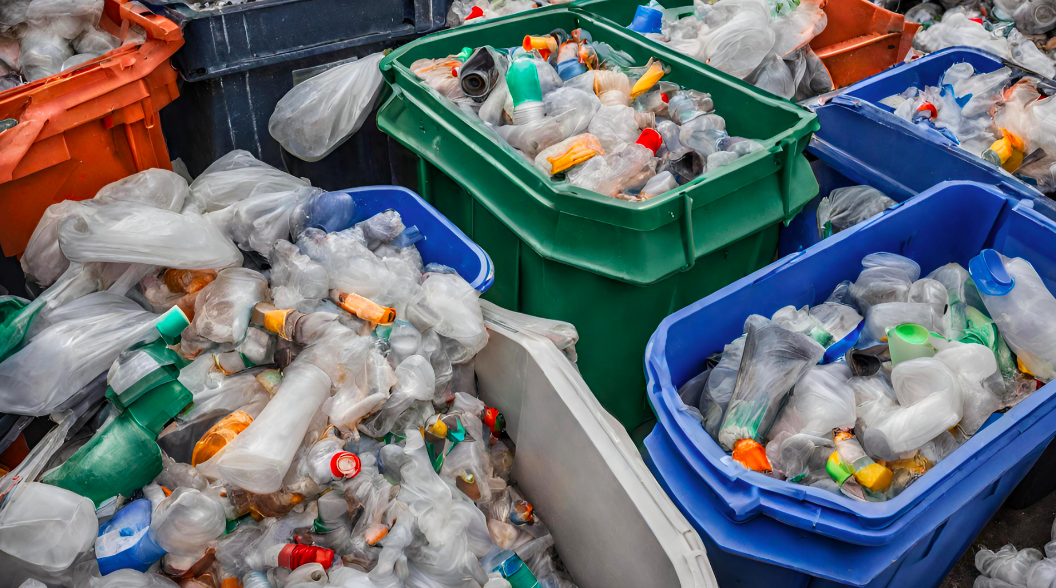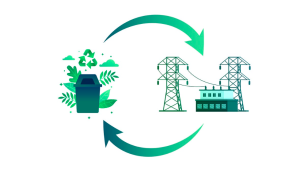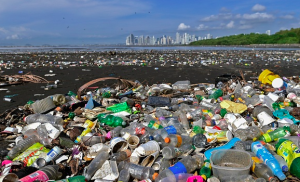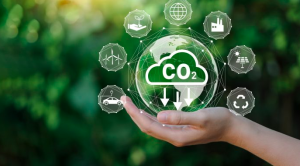
Advantages of Recycling Plastics.
Recycling plastics can have a few environmental advantages, adding to the general supportability and decreasing natural effects. A few vital environmental advantages of recycling plastics include:
Conservation of Resources by Recycling Plastics:

The preservation of assets is a vital natural advantage of recycling polymers. This point of view incorporates various inclinations that add to the practical use of materials and a reduction in the normal effect of plastic age. Here are a few explicit focuses connected with the preservation of assets through plastic reusing:
Diminished Need for Virgin Materials:
Recycling plastics diminishes the interest in virgin materials, for example, raw petroleum and flammable gas, which are utilized as feedstocks in creating plastic. By using reused plastics, there's less reliance on removing and getting ready restricted ordinary resources.
Energy Reserve funds:
The development of plastic from natural substances is energy-escalated. Recycling plastics for the most part requires less energy than delivering plastic from virgin materials. By utilizing reused polymers, the energy related to removing, refining, and it is monitored to produce virgin materials.
Details on “Creating Ficus Retusa Bonsai”.
Water Preservation:
Plastic creation, especially in the petrochemical business, frequently includes critical water utilization for cooling and handling. Recycling plastics affect the decline of the expect for water-concentrated structures related to the virgin plastic age, adding to water conservation tries.
Conservation of Living space and Biological systems:
Separating unrefined components for plastic creation can prompt territory obliteration and biological system disturbance. By propelling plastic reusing, the load on trademark domains is diminished, adding to the protection of biodiversity and the prosperity of organic frameworks.
Land Use Proficiency:
The extraction and handling of natural substances for plastic creation can bring about land debasement and living space misfortune. Recycling plastics limits the expectation for extra show-up for resource extraction, propelling more capable show-up use and decreasing regular effects.
Broadened Life Expectancy of Materials:
Recycling plastics extends the future of the materials, allowing them to be used in unused things. This has an effect that boosts the utility of resources and reduces the rate at which virgin resources are depleted.
Preservation of Non-Sustainable Assets:
Plastics are frequently obtained from non-inexhaustible assets like petroleum derivatives. Recycling plastics helps preserve these limited assets, guaranteeing that they are utilized more economically and sparingly.
Alleviation of Ecological Debasement:
The extraction and handling of unrefined substances for plastic creation can prompt ecological corruption, including soil disintegration and contamination. By Recycling polymers, the negative natural effects related to asset extraction and handling are relieved.
Energy Savings:

Details on “How to Create Bonsai?”
The natural advantage of "Energy Reserve funds" through the Recycling of plastics is a critical part of maintainability. The most common way of Recycling plastics ordinarily requires less energy contrasted with creating virgin polymers from unrefined substances. Here are explicit focuses featuring the ecological advantages of energy reserve funds in plastic reusing:
Decrease in Petroleum derivative Utilization:
Virgin plastic creation frequently depends on petroleum derivatives, like oil and flammable gas, as essential feedstocks. Extricating, refining, and handling these unrefined substances are energy-serious cycles. Recycling polymers fundamentally diminishes the requirement for these energy-concentrated advances, prompting a lessening in by and large petroleum product utilization.
Lower Ozone depleting substance Emanations:
The extraction and handling of petroleum derivatives for virgin plastic creation add to ozone-harming substance emanations. By picking reused plastics, which require less energy, the general carbon impression related to plastic assembling is decreased. This mitigates the effect of plastics on environmental change.
Diminished Energy Power in Handling:
The assembling of plastic items from reused materials for the most part includes less energy-concentrated processes contrasted with creating plastics without any preparation. This incorporates diminishing the energy expected for dissolving, forming, and shaping reused polymers into new items.
Details on "Taking Care of Cactus (Cacti)".
Energy Proficiency in Recycling Offices:
Recycling offices have become more proficient over the long haul, using trend-setting innovations to process and change reused plastics. These progressions add to energy proficiency in the Recycling system itself, further lessening the general energy utilization related to plastic reusing.
Preservation of Energy Assets:
Recycling plastics helps save energy assets by limiting the requirement for energy-serious cycles in virgin plastic creation. This can be particularly significant while thinking about the restricted idea of various essentialness resources, like fossil powers.
Advancement of Environmentally friendly power Mix:
As the interest in reused plastics builds, there is potential to additionally adjust Recycling cycles to environmentally friendly power sources. The reconciliation of sustainable essentialness developments in Recycling workplaces can work on the overall normal advantages of Recycling polymers by diminishing reliance on non-inexhaustible imperativeness.
Worldwide Energy Security:
By decreasing the energy request related to virgin plastic creation, Recycling adds to worldwide energy security. It diminishes dependence on non-renewable energy source imports, which can have international and monetary ideas.
Improved Life-Cycle Energy Execution:
While considering the whole life pattern of a plastic item, including extraction, creation, transportation, and removal, utilizing reused plastics frequently brings about lower general energy requests contrasted with items produced using virgin materials.
Decrease of Landfill Squander:

Details on “Creating Ficus Retusa Bonsai”.
The decrease in landfill squandering is a huge ecological advantage related to Recycling plastics. Here are explicit focuses featuring the natural benefits of limiting how much plastic waste is shipped off landfills:
Preservation of Landfill Space:
Plastics find an opportunity to deteriorate in landfills, and space in landfills is often restricted. By Recycling plastics, the volume of plastic waste shipped off landfills is diminished, preserving significant landfill space for materials that can't be reused or treated in the soil.
Counteraction of Soil and Water Defilement:
Plastics in landfills can release damaging synthetic substances and poisons as they separate after some time. Recycling plastics affect staying away from the possible debasement of soil and groundwater, guaranteeing conditions and decreasing the opportunity for hostile effects on human prosperity.
Minimization of Methane Emanations:
In anaerobic circumstances, for example, those found in landfills, polymers can deliver methane gas during decay. Methane might be a strong nursery gas that adds to environmental change. By redirecting plastics from landfills through reusing, the arrival of methane is limited.
Natural life Insurance:
Inappropriately arranged plastic waste in landfills can represent a danger to natural life. Creatures might ingest or become trapped in plastic trash, prompting injury or passing. Diminishing the amount of plastic shipped off landfills through Recycling has an effect that guarantees regular life and natural frameworks.
Learn "How to make cheese at home?"
Advancement of Maintainable Waste Administration Practices:
Underscoring Recycling as a component of waste administration energizes more manageable practices. It develops a move missing from reliance on landfills as the fundamental exchange procedure and advances the determination of far-reaching waste organization strategies, counting reusing, fertilizing the soil, and waste-to-energy progresses.
Long haul Natural Protection:
Plastics can continue in the climate for many years. By possessing plastics from landfills through reusing, the drawn-out regular effect of plastic waste is limited, adding to the protection of organic frameworks and typical scenes.
Decrease of Leachate Creation:
Landfills produce leachate, a fluid that structures as water permeates through squandered materials. Leachate can contain hurtful substances that might defile groundwater. Diminishing the amount of plastic in landfills through Recycling affects moderating the age of leachate and limits the connected regular risks.
Diminished Need for New Landfills:
As existing landfills arrive at a limit, networks might confront the test of siting and making new landfills. By decreasing the amount of plastic waste through reusing, the solicitation for current landfill objections is lessened, facilitating the regular and social effects related to landfill advancement.
Greenhouse Gas Emission Reduction:

How does sugar damage the brain?
The Recycling of plastics adds to the reduction of nursery gas radiations, promoting critical regular advantages. Here are explicit focuses featuring how Recycling plastics mitigates the effect of environmental change by bringing down ozone-depleting substance emanations:
Diminished Emanations from Virgin Plastic Creation:
The development of virgin plastics from unrefined components, like petroleum derivatives, is energy-concentrated and delivers ozone-harming substances. By using reused polymers, which require less imperativeness than making unused plastics, the overall carbon impression related to plastic manufacturing is diminished, heading to bring down nursery gas spreads.
Petroleum product Protection:
Plastics are regularly obtained from petroleum derivatives like oil and flammable gas. Extricating and handling these non-renewable energy sources for plastic creation add to fossil fuel byproducts. Recycling plastics lessens the interest in virgin materials and, thus, helps moderate petroleum derivatives, in this way bringing down related ozone-harming substance outflows.
Energy Productivity in Recycling Cycles:
Recycling advances have become more energy-effective after some time. Degrees of progress in Recycling structures, like arranging, cleaning, and going back over, add to bring down imperativeness usage, coming to fruition in diminished nursery gas surges contrasted with traditional manufacturing methodologies.
Aversion of Methane Emanations from Landfills:
At the point when plastics end up in landfills, they can go through anaerobic deterioration, delivering methane — a strong ozone-depleting substance. By Recycling plastics and diverting them from landfills, the release of methane is limited, adding to the decline of transient environmental influences.
Advancement of a Roundabout Economy:
Recycling is a vital part of a roundabout economy, where materials are reused and reused as opposed to being discarded after a single use. A roundabout economy limits the expectation for persevering extraction of rough materials and reduces the energy-concentrated structures related to virgin texture age, coming to fruition in lower nursery gas spreads.
Lower Carbon Power in Recycling Offices:
Recycling offices can incorporate sustainable power sources, further decreasing their carbon force. Using cleaner essentialness decisions, for example, sun-fueled or wind control, in Recycling structures adds to the overall diminishment of nursery gas surges related to plastic reusing.
Worldwide Environmental Change Moderation:
Given the expansive use and age of plastics, the absolute effect of Recycling on diminishing nursery gas outpourings adds to more extensive undertakings in directing environmental change. By embracing prudent sharpens like plastic reusing, the normal local area makes progress toward achieving environmental goals and lessening the overall carbon impression.
Further developed Life-Cycle Appraisals:
Life-cycle appraisals of items think about their natural effect from unrefined substance extraction to removal. Involving reused plastics in assembling processes frequently brings about lower life-cycle ozone-harming substance discharges contrasted with items produced using virgin materials.
Protection of Wildlife and Ecosystems:

What kinds of harm is done by drinking alcohol?
The insurance of natural life and biological systems is a critical ecological advantage related to Recycling polymers. Here are explicit focuses featuring how Recycling plastics helps shield biodiversity and the soundness of normal natural surroundings:
Avoidance of Environment Obliteration:
The extraction of unrefined components for virgin plastic creation can prompt environmental obliteration, influencing biological systems and the species that depend on these living spaces. By Recycling polymers, the solicitation for unused rough materials is lessened, affecting secure typical conditions from advance debasement.
Decrease of Plastics Contamination:
Inappropriately arranged plastics waste represents a critical danger to untamed life. Marine and earthbound creatures can ingest or become trapped in plastic trash, prompting injury, suffocation, and demise. Recycling plastics limits plastic contamination by redirecting materials from the climate, diminishing the dangers to natural life.
Marine Life Insurance:
Plastics that end up in seas and streams can have extreme ramifications for marine life. Recycling plastics decreases how much plastic waste enters oceanic conditions, safeguarding marine biological systems and the assorted species that occupy them.
Alleviation of Microplastic Contamination:
Over the long run, plastic trash can separate into more modest particles known as micropolymers. These microplastics can negatively affect amphibian life and biological systems. By Recycling plastics, the general contribution of plastic particles into environments is decreased, assisting with relieving the effect of microplastic contamination.
Muscle Building for Body Fitness
Safeguarding of Biodiversity:
Plastics can by implication affect biodiversity by upsetting pecking orders and biological systems. For instance, when hunters botch plastic flotsam and jetsam for prey, it can prompt irregular characteristics in species populations. Recycling polymers adds to the conservation of biodiversity by decreasing the adverse consequences of plastic contamination on biological systems.
Protection of Jeopardized Species:
Numerous species, including those recorded as jeopardized, are powerless against the effects of plastic contamination. By Recycling plastics and limiting the arrival of plastic waste into normal territories, protection endeavors for imperiled species are upheld, as their biological systems are less upset.
Sound Biological System Working:
Environments depend on the equilibrium and strength of their parts. Plastic contamination can upset this equilibrium, influencing the way of behaving, propagation, and endurance of different species. Recycling plastics keeps up with the normal working of environments by decreasing the presentation of hurtful contaminations.
Advancement of Manageable Utilization:
Empowering Recycling is essential for more extensive work to advance reasonable utilization designs. By bringing issues to light about the natural effect of plastic waste on untamed life and biological systems, Recycling drives add to a more dependable and ecologically cognizant society.
Promotion of a Circular Economy:

The advancement of a roundabout economy is a key natural advantage related to Recycling plastics. This idea includes the nonstop use, reusing, and reintegration of materials into the creation cycle, limiting waste, and expanding asset proficiency. Here are explicit focuses featuring how Recycling plastics adds to the advancement of a roundabout economy:
Asset Preservation:
Recycling plastics decreases the interest in virgin unrefined components, for example, non-renewable energy sources, that are generally utilized in plastic creation. By Recycling and Recycling polymers, the requirement for ceaseless extraction of limited assets is limited, adding to the preservation of normal assets.
Shut Material Circles:
In a round economy, materials are kept in shut circles, with items intended for simple dismantling and reusing. Recycling plastics considers the formation of shut material circles where plastic items are gathered, handled, and used to fabricate new items, diminishing the dependence on a straight "take, make, arrange" model.
Expanded Item Life expectancy:
By Recycling plastics, materials can be once again introduced into the creation cycle, expanding their life expectancy and diminishing the recurrence with which new materials should be removed and handled. This approach lines up with the roundabout economy rule of amplifying the utility of assets after some time.
https://livewithgreen.com/environmental-advantages-of-recycling-plastics/
.jpg)